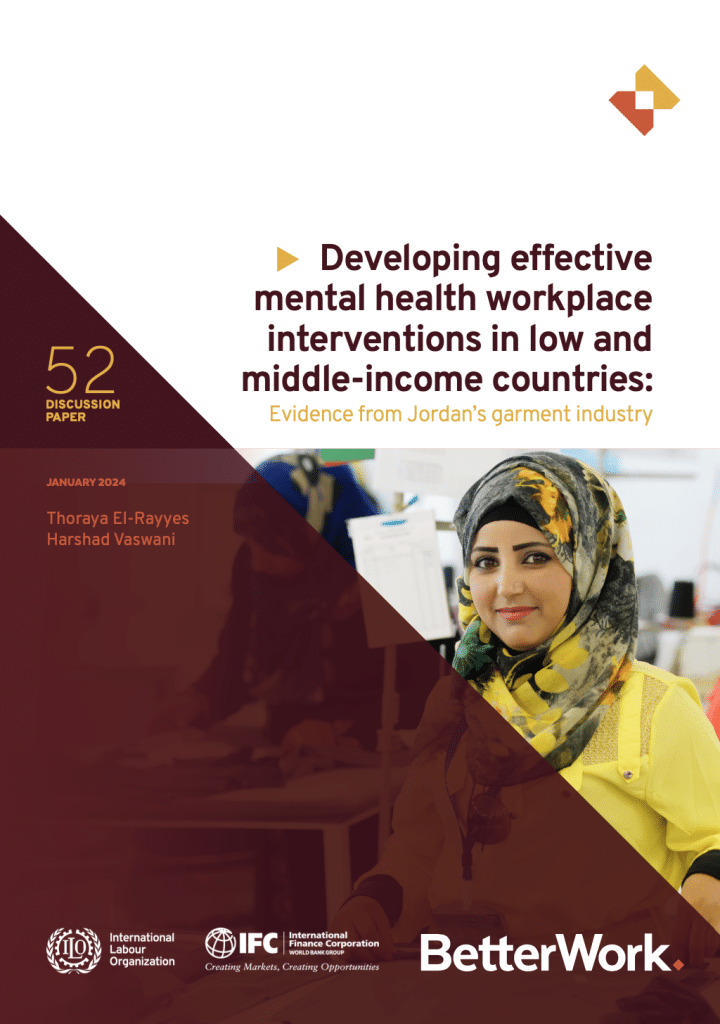Authors : Thoraya El-Rayyes and Harshad Vaswani
This paper investigates the impact of an innovative program to improve mental well-being among workers in Jordan’s export-oriented garment industry. The program under study was conceptualized by Better Work Jordan, a partnership between the International Labour Organization (ILO) and the International Finance Corporation (IFC) which aims to improve working conditions, enhance business competitiveness, and support greater social and economic development in Jordan’s garment industry.
The workplace mental health programme was implemented by Better Work Jordan in collaboration with the Jordanian Ministry of Health and over thirty garment factories across the country.
To evaluate the causal impacts of the Better Work Jordan Mental Health Project, we employ the difference-in-differences (DID) method with subgroup balancing propensity scores. To conduct our analysis, we leverage data from a series of national surveys of workers in Jordan’s garment industry that have been conducted annually by Better Work Jordan since 2019, and which combine mental health indicators with rich employment and demographic data. We find that the Better Work Jordan mental health interventions had a significant positive impact on the mental well-being of garment factory workers, and that the training component of the interventions in particular appears to have been a major driver of the positive effects observed.
This training component involves mental health support training to workplace healthcare professionals and managers which provides them with the skills, knowledge and tools to proactively identify and assist workers in need of mental health support.
This paper is structured as follows: section 2 provides an overview of mental health risks in global supply chain factories. Section 3 summarizes the extant research that has aimed to identify evidence-based interventions for improving workplace mental health. Section 4 provides an overview of mental health outcomes in Jordan’s export-oriented garment industry and a description of the Better Work Jordan Mental Health Project. Section 5 details the data and methods employed in our analysis. Section 6 presents our main results. Finally, section 7 concludes with a discussion of our results and suggestions for future research in this area.
